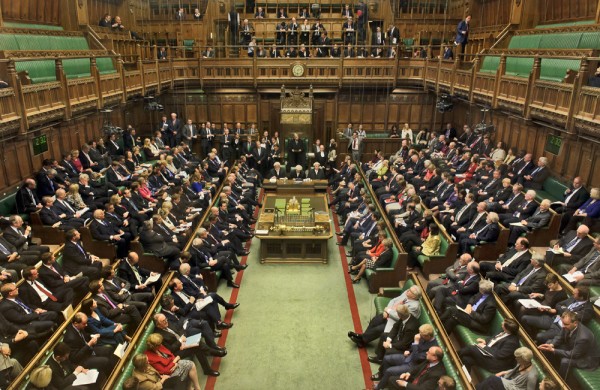Here in the UK, we are gearing up for not one, not two but three big votes this year. In May, we hit the polls to vote for our local councillors and a Police & Crime Commissioner. In the summer, we go back to the ballot box for the much-anticipated EU Referendum. But why do we do this? Why does the government ask us to vote on such things? Well, here’s a brief history of a little thing called democracy.
We take it for granted but it’s one of the foundations of our way of life. Democracy. We the people can hold to account those who run our country. Those we select and entrust with the power to keep us safe, housed and healthy. But where did it all start… hop in the TARDIS and let’s find out…
6th Century
 The origins of Democracy, as we know it, can be traced back to 6th century Greece. There is evidence that broader forms of democratic governance existed long before this, for example when earlier tribes would select a leader or chief through popular vote rather than any monarchical entitlement or fight to the death. Scholars favour 6th century Athens as the birthplace of democracy as it saw the mass of free citizens (exclusively male at this point) given the ultimate power to select their ruling council.
The origins of Democracy, as we know it, can be traced back to 6th century Greece. There is evidence that broader forms of democratic governance existed long before this, for example when earlier tribes would select a leader or chief through popular vote rather than any monarchical entitlement or fight to the death. Scholars favour 6th century Athens as the birthplace of democracy as it saw the mass of free citizens (exclusively male at this point) given the ultimate power to select their ruling council.
13th Century
 1215– The idea of democracy first fostered in Britain under King John in 1215, 801 years ago. This is when the Magna Carta was first written. It was an important first step towards removing ultimate power from the King and spreading it wider. The King angrily repealed this document shortly after but it is seen as the first step in England’s – and later the United Kingdom’s – unwritten constitution.
1215– The idea of democracy first fostered in Britain under King John in 1215, 801 years ago. This is when the Magna Carta was first written. It was an important first step towards removing ultimate power from the King and spreading it wider. The King angrily repealed this document shortly after but it is seen as the first step in England’s – and later the United Kingdom’s – unwritten constitution.
14th Century
1376– An English Parliament had existed since the late 13th century, and had been divided into two houses since 1341, with knights and burgesses sitting in what became known as the House of Commons while clergy and nobility sat in the House of Lords.
17th Century
 The English Civil War had removed the monarchy, before reinstating it again in a weaker form shortly after. The arrival of William of Orange, who took the throne from James II, led to the creation of the Bill of Rights which prevented absolute rule by Kings and Queens and leaving Parliament as the true seat of power in the UK. So there it is. Real representative democracy. Now, all we have to do is ensure Parliament is elected by a popular, free vote.
The English Civil War had removed the monarchy, before reinstating it again in a weaker form shortly after. The arrival of William of Orange, who took the throne from James II, led to the creation of the Bill of Rights which prevented absolute rule by Kings and Queens and leaving Parliament as the true seat of power in the UK. So there it is. Real representative democracy. Now, all we have to do is ensure Parliament is elected by a popular, free vote.
19th Century
 1832– Prior to the Reforms Act of 1832, you had to meet certain criteria of wealth and land ownership to qualify for the right to vote. This meant around half a million people nationwide could vote. This wasn’t very representational as Yorkshire which boasted 20,000 eligible voters had one seat in parliament, the same as Dunwich that had just 32 eligible voters. The Reform Act opened up voting rights to over a million people… well, a million men – One in six of all adult men – but you had to own a house over a certain value to qualify. It also changed the boundaries to give larger population areas more representatives in parliament to take into account the rise of cities since the Industrial Revolution. The Act was updated in 1837 to enfranchise all male homeowners, regardless of wealth and property value. Under these restrictions, would you be eligible to vote yet?
1832– Prior to the Reforms Act of 1832, you had to meet certain criteria of wealth and land ownership to qualify for the right to vote. This meant around half a million people nationwide could vote. This wasn’t very representational as Yorkshire which boasted 20,000 eligible voters had one seat in parliament, the same as Dunwich that had just 32 eligible voters. The Reform Act opened up voting rights to over a million people… well, a million men – One in six of all adult men – but you had to own a house over a certain value to qualify. It also changed the boundaries to give larger population areas more representatives in parliament to take into account the rise of cities since the Industrial Revolution. The Act was updated in 1837 to enfranchise all male homeowners, regardless of wealth and property value. Under these restrictions, would you be eligible to vote yet?
20th Century
 1918 – Following the First Wold War, where millions of young men who were ineligible to vote for their government gave their lives for their country, the 1918 Representation of the People Act lifted the restrictions on home and land-ownership in regards to voting making every male over the age of 21 eligible to vote. The act also finally gave women over 30 the right to vote for the very first time.
1918 – Following the First Wold War, where millions of young men who were ineligible to vote for their government gave their lives for their country, the 1918 Representation of the People Act lifted the restrictions on home and land-ownership in regards to voting making every male over the age of 21 eligible to vote. The act also finally gave women over 30 the right to vote for the very first time.
1928 – Ten years after the original Representation of the People Act, an amendment was tabled where the voting age for women was dropped to 21, finally giving women the same voting rights as men.
1969 – The voting age for all citizens was lowered from 21 to 18 years of age. From this day forth, every man and woman over the age of 18 years old was eligible to vote. This remains in effect to this day. As long as you register so your name appears on the electoral role you can have a say in who runs the country, your local council, your local police force and even if the UK stays apart of the EU.
21st Century
2016 – As long as you’re over 18 and a UK citizen you are now eligible to vote. Congratulations. Everything that’s happened until now has afforded you this right. Go and get yourself registered, if you’re not already. It’s been a long road to give you the right to vote. It’s a right many have fought and died for. It’s a right denied from so many for so long. But you have it. So, what’s your excuse? Register to vote today ahead of the local elections in May.






